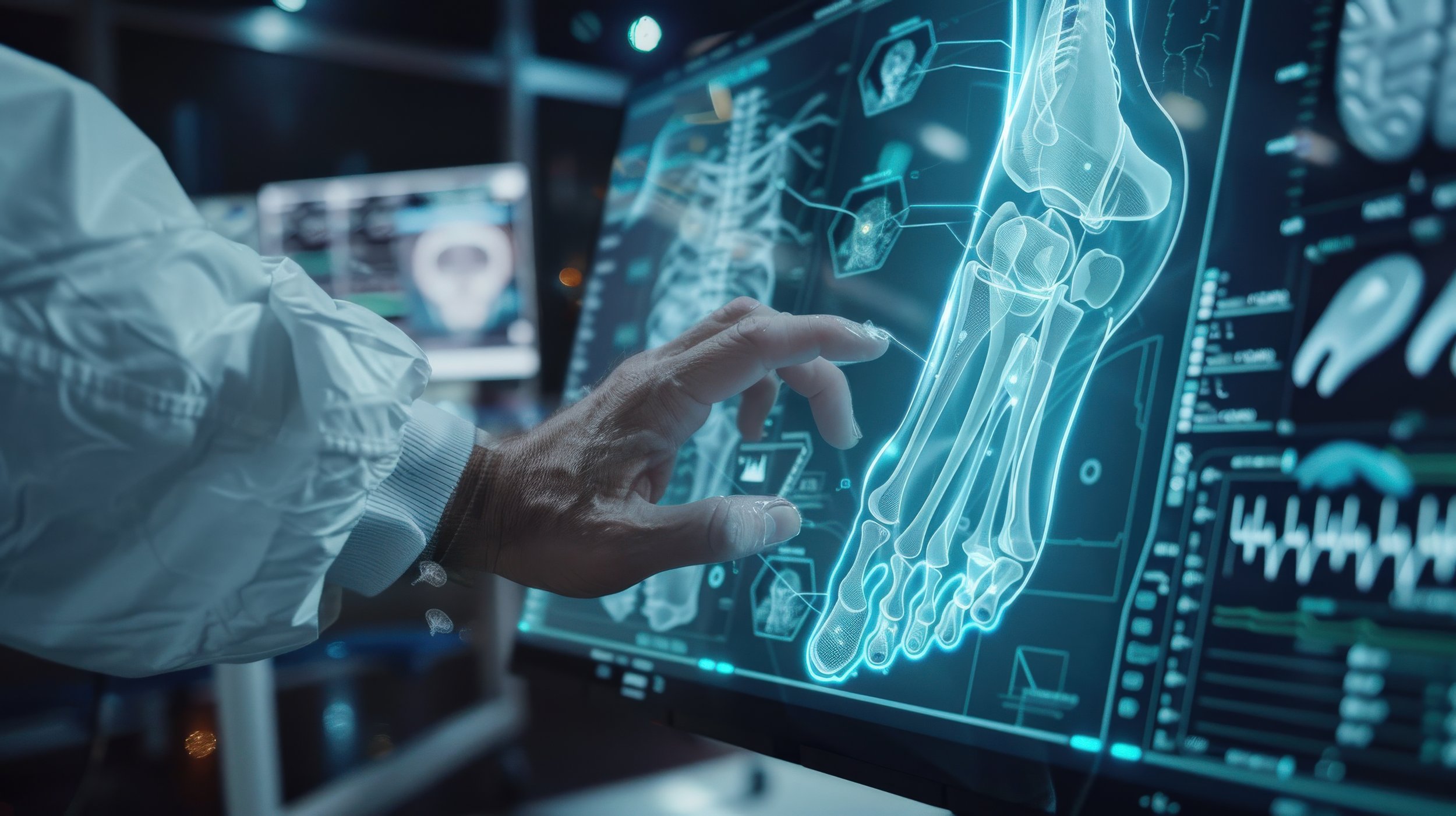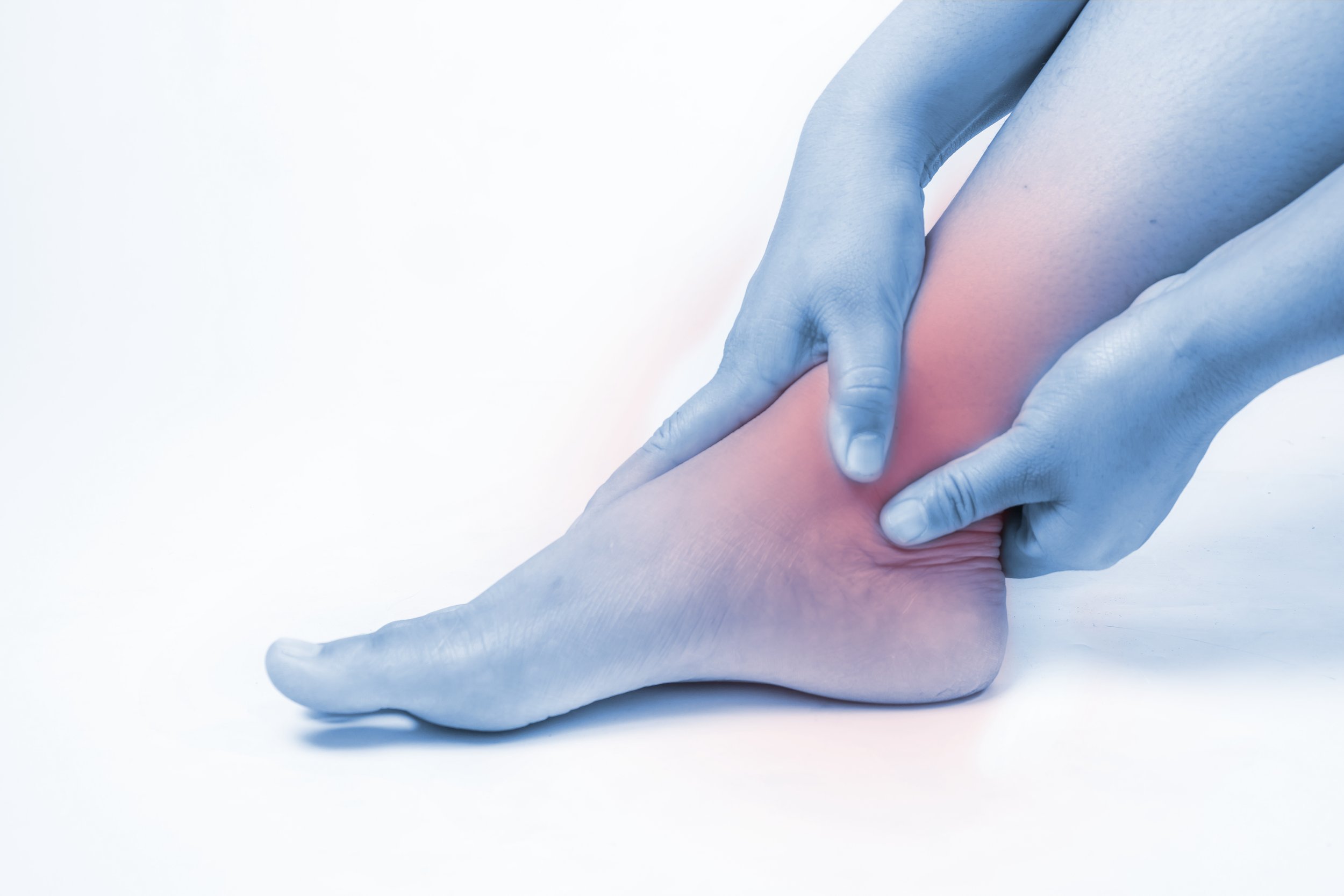
WHY SEE A PODIATRIST
CONDITIONS AFFECTING THE LOWER LIMB
-

DISORDERS OF THE NAILS
Podiatrist are trained to diagnose and treat a variety of nail conditions. Some common nail conditions that Podiatrists deal with include:
Ingrown Toenails
Trauma or injury to the nail
Fungal nail infections (Lab tested on site)
Nail psoriasis
Nail deformities
Nail tumours
Nail care for Diabetic patients
-

DISORDERS OF THE SKIN
Various skin disorders can affect the lower limbs. Some common skin disorders that Podiatrists deal with include:
Corns
Calluses
Blisters
Fungal skin infections (Athlete’s foot)
Plantar warts
Psoriasis
Eczema
Ulcers
Open wounds
-

RHEUMATOLOGICAL CONDITIONS
Rheumatological conditions, also known as musculoskeletal diseases, are a group of disorders that primarily affect the joints, muscles, bones, and connective tissues. Common rheumatological conditions affecting the lower limb include:
Rheumatoid Arthritis (RA)
Osteoarthritis (OA)
Gout
Psoriatic Arthritis (PsA)
Reactive Arthritis
Systemic Lupus Erythematosus (SLE)
-

FOOT AND ANKLE PAIN
Common causes of foot and ankle pain that Podiatrists regularly diagnose and treat may include:
Plantar Fasciitis
Achilles Tendonitis
Sprains and Strains
Fractures
Bunions
Hammertoes
Morton’s Neuroma
Arthritis
Tendonitis
Nerve Entrapment
-

SPORTS INJURIES
Podiatrists commonly deal with various sports injuries affecting the lower extremities. Here are a few of the sports injuries we diagnose and treat:
Ankle Sprains
Stress Fractures
Achilles Tendonitis
Plantar Fasciitis
Metatarsal Stress Fractures
Tuft Toe
Sesamoid Injuries
Shin Splints
-

VASCULAR CONDITIONS
Podiatrists play a role in diagnosing and treating various vascular conditions that can affect the feet and lower extremities. Here are some common vascular conditions that Podiatrists may diagnose and treat:
Peripheral Arterial Disease (PAD)
Deep Vein Thrombosis (DVT)
Venus Insufficiency
Diabetic Peripheral Arterial Disease
Raynaud’s Disease
Lymphedema
Chronic Venous Insufficiency
-

BUNIONS AND HAMMERTOES
Bunions and Hammertoes are bony deformities that can cause individuals pain and discmfort. Podiatrists typically approach these conditions:
Assessments and diagnosis including X-rays
Non-surgical treatments such as footwear, padding or taping or physical therapy
Medications and injections
Surgical intervention may be recommended
-

DIABETIC FOOT CARE
Podiatrists play a vital role in Diabetic foot care by preventing complications, managing existing conditions, and improving the quality of life for individuals with diabetes. Early intervention and regular visits to a Podiatrist are essential to maintain optimal foot health and reduce the risk of severe complications such as amputations.
-

GERIATRIC PODIATRY
Geriatric Podiatry is a branch of Podiatry that focuses on and caters to the unique foot-related needs and conditions commonly seen in the elderly population.
The ageing process can bring about a variety of foot-related changes and conditions, including:
Reduced mobility and balance
Foot deformities
Skin and nail conditions
Blood circulation issues
Diabetic lower limb care
Joint and arthritis-related lower limb problems